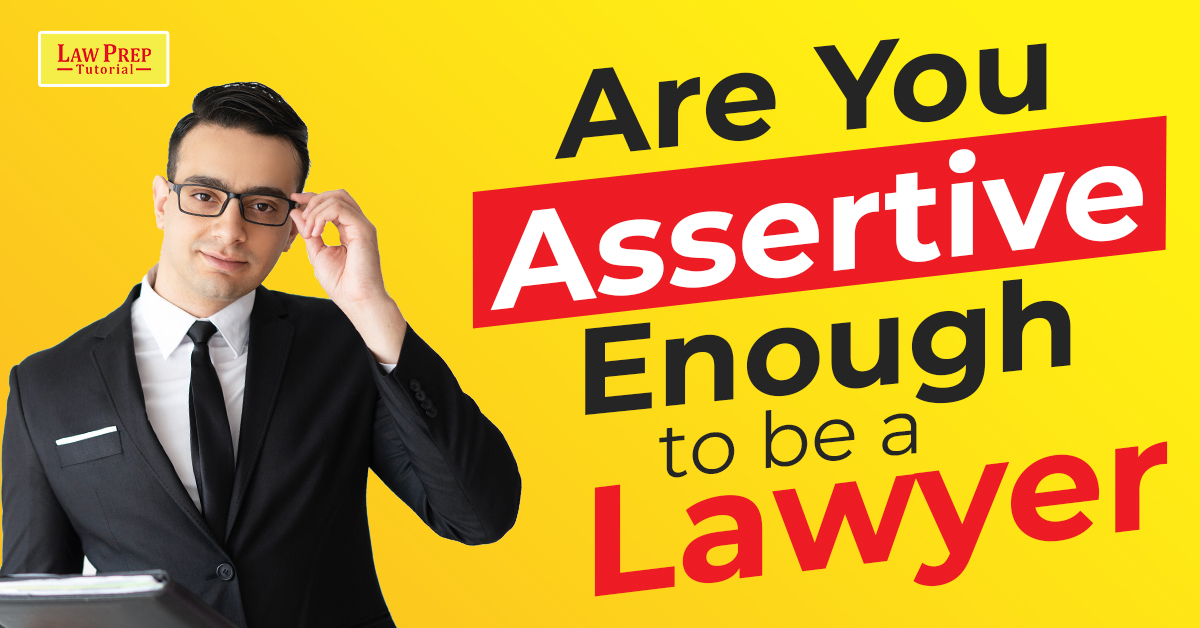
Lawyers are expected to stand on their ground and express their feelings openly, whether it’s about declining a case or standing up for a colleague. But it doesn’t come easy.
In this article, you’ll read about some tips to help you get more comfortable with speaking up and advocating for yourself.
How is being assertive beneficial for lawyers?
One of the main benefits of being assertive is that it helps you become more self-confident, as you get a better understanding of who you are and what you value.
Some more benefits are:
It helps with stress and anxiety.
Confidence and good communication skills can help lawyers find alternative ways of dealing with conflictual situations. This also helps when the lawyer is on the receiving end of aggressive behavior. Better communication and coping skills can help overcome feelings of intimidation or loss of control when confronted by people with inappropriate attitudes.
Improves confidence.
Being assertive helps lawyers respond better in a problematic situation. Learning to set boundaries and maintaining a professional relationship with clients will help you make clear choices and confident decisions in the long run.
Improves communication skills.
Having a serious discussion is an essential part of a lawyer’s profession. Lawyers learn to become great listeners, which is vital for gathering any critical information. Doing so will build the client’s interest, and they’ll comfortably express their thoughts.
Being a problem solver.
Lawyers routinely deal with persistent problems as clients transfer their issues on the shoulders of lawyers. But they have to focus on obtaining the best practical outcome. Assertive communication helps in providing an ideal framework for collaboration and makes “win-win” situations more likely to happen.
Some practical steps to become more assertive
Evaluate your thoughts and identify your triggers.
Analyze the situations that make you feel stressed and know what thoughts are running in your head in those moments.
If you’re aware of your blind spots, you can take control of them and be mentally prepared to deal with them. Remember that only you can control yourself and your behavior, so do your best to stay calm and measured if things get tense.
Learn assertive communication techniques.
There are a number of techniques and strategies you can use to communicate more assertively. Your body language, tone, sentence structure have a direct impact on how assertive you are.
For instance, while speaking with clients, maintain eye contact as it will help you stay focused. Similarly, having a relaxed tone will help you remain calmer in a stressful situation. When responding to a criticism or in a difficult situation, use the word “I” to convey basic assertions or get your point across firmly, like, “I feel”, “I want”, or “I need”.
Learn to say “No”.
Learning to say “No” is crucial if you want to become more assertive. Know your bottom line and stick to it, as it will help you manage your tasks more effectively. For example, if you don’t wish to take a case or if the client asks you to do certain things that are improper or unwise, then you must say “No”. Also, creating a list of work priorities can be beneficial when someone is allocating you more work as it enables you to clearly communicate what you are currently working on and how urgent it is.
Remember that you can’t please everyone, so it’s important that you protect your time and workload by saying “No” when necessary.
Express yourself in a positive way.
It is important that you express whatever is in your mind, even in a difficult situation. But you must know how to do it sensitively and constructively.
Don’t be afraid to put out your emotions and confront people who challenge your rights. You can even allow yourself to convey your anger through words or gestures at things that are not ethically right or might upset your mood. But remember to be empathetic and respectful at all times.
Be open to criticism and compliments.
Lawyers must know how to accept both positive and negative compliments positively, humbly, and graciously.
You can put your views across if you don’t agree with the criticism, but without getting defensive or angry.
Conclusion
Assertiveness won’t happen overnight – it relies on many different skills, including goal-setting, prioritisation, and body language. Communicating more assertively is an ongoing process and will involve a process of trial and error. You’ll slowly build up the confidence and self-belief required to become assertive with time.
The most important things are to start practicing assertiveness and not being too hard on yourself if you don’t succeed right away. Lawyers are renowned for their persistence, high standards, and attention to detail. This means they will eventually succeed in adopting a new skill. Remember, the only person you are competing with is a better version of yourself!
If you liked this, you might also like…
Some Interesting Facts About Lawyers
“Rules Are Meant to be Broken”- But What if You Become a Lawyer?

Leave a Reply